DHeritage First Decade
In October this year, the Professional Doctorate in Heritage (DHeritage) will celebrate its first decade. It was launched in October 2014, with the first intakes of students having since graduated with their doctorates.
The University of Hertfordshire (UH) has an excellent Doctoral College, led by Dr Susan Grey. UH was progressive in launching professional doctorates across all of its schools of study relatively early on. DHeritage was developed within the History group led by Professor Owen Davies in the School of Humanities. The programme director for the first term was Dr Alix Green, who is now based at the University of Essex. Recalling the ‘conception and design phase’ of DHeritage (2011-13), Alix said:
There were established models of professional doctorates, such as in education, but the range [and] diversity of heritage and public history careers meant we started in many ways from scratch. The process of pooling and shaping ideas was so creative and collaborative. And then we had to work out how to turn them into workable programme that'd be meaningful and rewarding for prospective students who were already heritage professionals with experience and expertise to bring.
Following a formal recruitment process, I was appointed as Director of DHeritage in spring 2015 and I have very much enjoyed leading the programme continuously since then. DHeritage is now housed in the School of Creative Arts, which has incorporated the History group and other colleagues from Humanities.
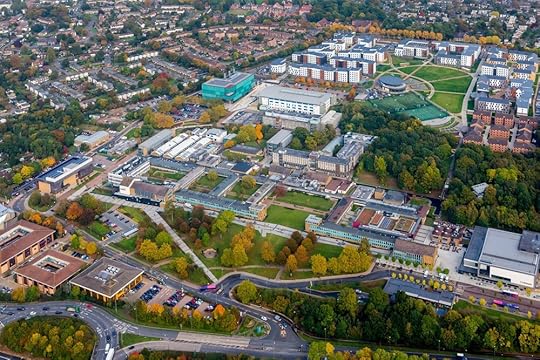
Aerial view of the College Lane Campus, University of Hertfordshire, Hatfield, showing the five School of Creative Arts buildings in the lower left corner. The De Havilland Campus (not shown) is nearby.
A Distinctive Student ExperienceDHeritage is distinctive in a number of ways.
As a professional doctorate, rather than a traditional PhD, it attracts an international community of practitioners currently working (usually full time) in the heritage field broadly defined. Our students work in areas such as planning, museums, archives, community history and engagement, archaeology, social and cultural sustainability and funding. Applicants must have at least five years’ experience of working in heritage, as well as a master’s degree, and a compelling research proposal which shows the potential to make an original contribution to knowledge.
DHeritage provides a rich, multi-disciplinary academic context for our students’ research into issues and questions thrown up in their professional heritage work. We reflect on and contribute to the latest thinking in a dynamic and ever-changing sector crucial to local and national identities and economies. Supervisory teams are composed according to students’ needs with experts drawn from across the University, working in History, Business and Tourism, Education, Literature, Creative Arts and Design, Architecture, and Urbanism, among other fields.
Our students follow the programme as part of a cohort, supported by bespoke training workshops on core topics in methodology, project development and presentation, and an ever-changing array of thematic workshops which keeps pace with the development of critical thinking in heritage. Workshop topics have included professional ethics, heritage and sustainability, cultural memory, heritage policy, dark and difficult heritage, natural heritage, and LGBTQ+ heritages, to name but a few. DHeritage students and staff benefit from occasional study visits, such as to the Museum of Domestic Design and Architecture (MoDA) at the University of Middlesex for a workshop on design and heritage, and to Soho, London, in preparation for our workshop on LGBTQ+ heritages. In addition, our university-wide Researcher Development Programme offers an wide range of research skills training and provides opportunities to study alongside research students working in other disciplines.
For their professional doctorates, DHeritage students produce work which will directly impact heritage practice. Students can support their dissertations with an equivalent portfolio that can take any form that demonstrates the thesis including, for example, policy documents, toolkits, documentary films, exhibitions, catalogues, or heritage trails.
The University of Hertfordshire is uniquely well equipped to host DHeritage. Our students draw on the rich research contexts of our Schools, our research cluster Heritage, Cultures and Communities, the University-wide collaborative expertise of our Heritage Hub, our regional UHArts centre, and the Doctoral College. In 2021, we were ranked 10th globally for overall student satisfaction. The University of Hertfordshire’s main campus straddles the A1(M), twenty minutes north of London, UK and benefits from excellent public transport links. DHeritage is offered through distance learning for international students and we are committed to hybrid and online delivery for all, making DHeritage a convenient degree for those outside of the region, working full time and/or with significant other responsibilities.
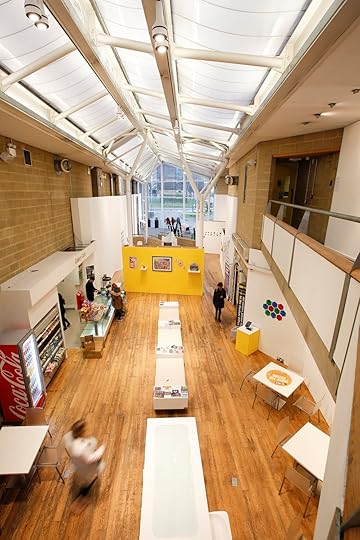
The Art and Design Gallery, on College Lane Campus, viewed from its balcony.
Change and DevelopmentDHeritage has of course experienced some changes across its decade of existence:
Our student group has grown steadily to form a rich learning set in which peer interactions are as important as the bespoke workshop training we offer. This networking and peer learning is a richly rewarding dimension of the programme.
Workshop delivery has developed to recognise how much the students have to contribute, as experts in their fields through their professional careers, as well as becoming experts academically as their doctorates progress. For me, having taught undergraduates and master’s students, alongside some doctoral delivery and supervision, for the two decades prior to taking on the Directorship of DHeritage, this has been an exciting pedagogical challenge.
Workshops shifted from in person events to wholly online in March 2020 due to the closure of the University in response to the COVID-19 pandemic. Since 2022/3, we have delivered hybrid workshops offering students a choice of both campus and online participation. The latter is useful for our overseas students and those who cannot travel to Hatfield due to work commitments, access requirements, etc. We are discussing a return to fully online workshops to enable richer online approaches.
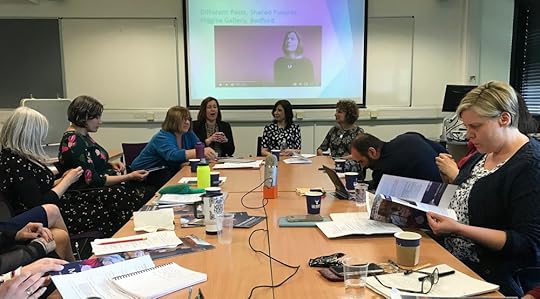
A Heritage workshop on oral history methods, led by Professor Anne Murphy with Dr Ciara Meehan.
Five-Year ReviewAt the half-way point in the programme’s development to date, I led DHeritage through a Periodic Review, which is the University’s way of evaluating the currency and usefulness of its programmes in consultation with external industry professionals and colleagues across the institution. In 2019, external assessor Professor Paul Ward (now retired) was very positive about DHeritage:
The DHeritage at the University of Hertfordshire is an innovative and well thought out programme. […] from induction through to completion. In particular, the desire for a cross cohort identity and the methods to instill it among a part-time cohort across various years of the programme is commendable. The workshop materials/assignments and virtual learning environment (Canvas) content was excellent. In each case, there were clear signs of leadership for staff involved, ensuring an admirable ethos and style in the programme, to the benefit of the students.
Ward additionally noted ‘the richness of research strength and the variety of disciplines that are accommodated within the DHeritage's offer’ and concluded that ‘this is an excellent and coherent programme with many innovative features and commendable learning resources to develop heritage professionals as researchers.’ Our second Periodic Review will take place next year and we welcome the opportunity to reflect and benefit from further evaluation of our programme.
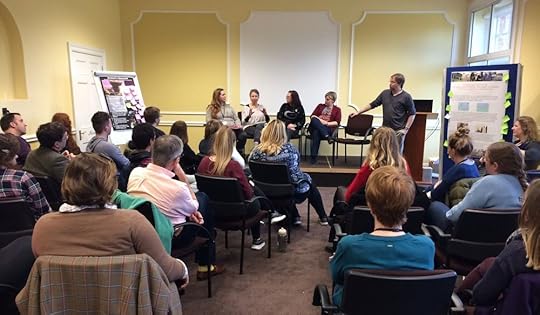
Panel discussion with DHeritage students convened by Prof Owen Davies (standing, right), Cumberland Lodge, Windsor Great Park.
Student SuccessesWe have very much enjoyed celebrating the successes of our students, including not only our graduates, but also the contributions all of the students have made to knowledge and understanding of the field through publications, podcasts, national radio appearances, various symposia, including this one sponsored by the Design History Society, the Design Museum and UH, and conference contributions, from the international Association of Critical Heritage Studies conference, to the convening and hosting of a student-led conference in 2023. I was delighted to include DHeritage student Barbara Wood’s work in a co-edited book, which - prompted by my experience as a design historian directing DHeritage - explores the relationship between design and heritage.
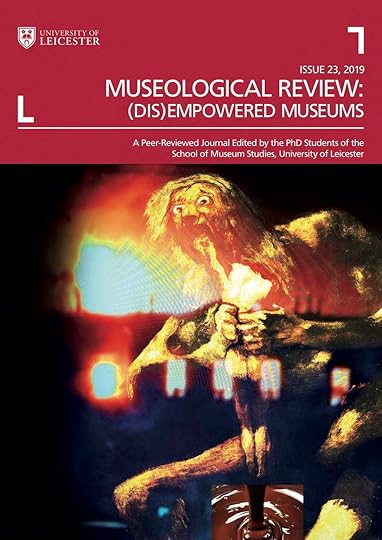
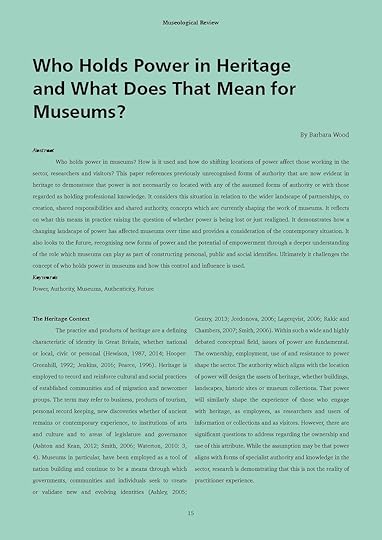
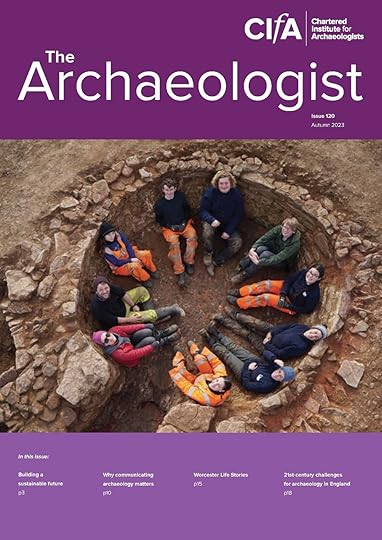
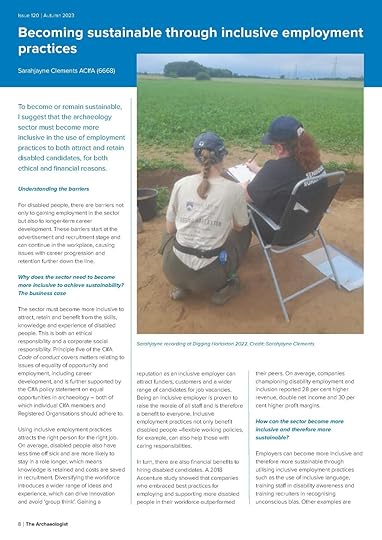
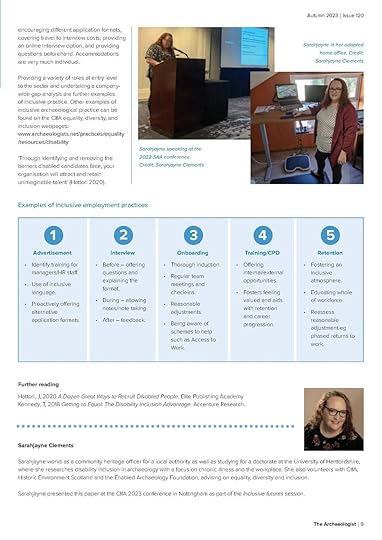
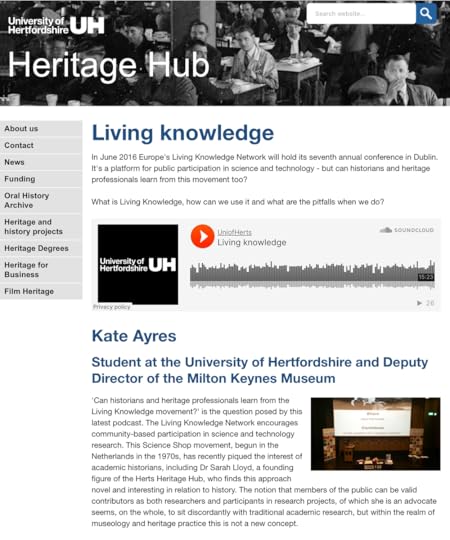
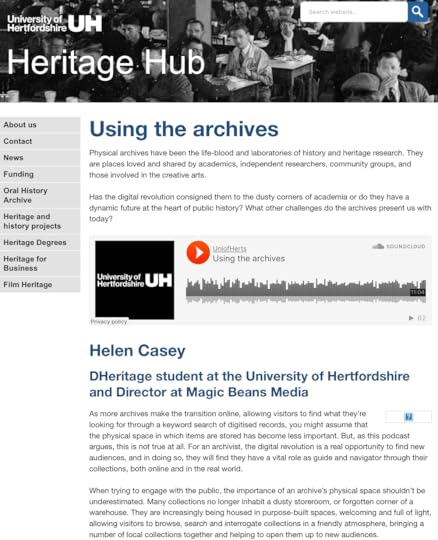
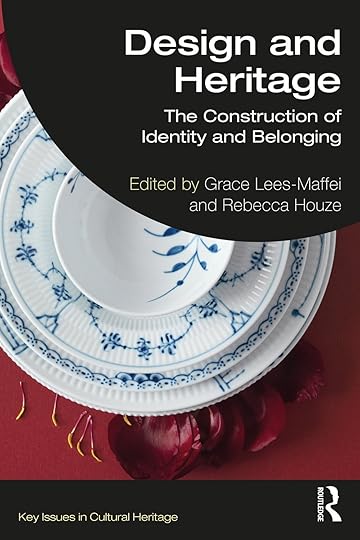
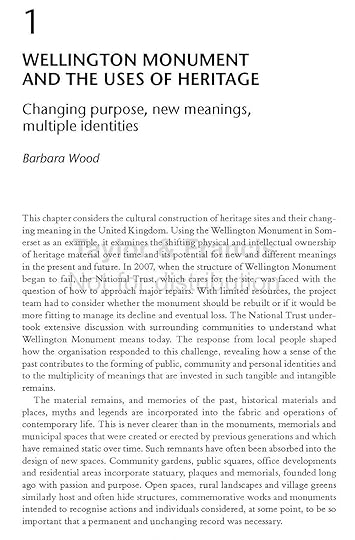
Join Us!
If this brief review has piqued your interest in DHeritage, please read about the course structure here, and get in touch with me at g.lees-maffei@herts.ac.uk for an information sheet, including instructions on how to apply, and a guide to drafting a DHeritage research proposal, as well as information about our competitive bursary, which covers part-time fees for six years, and an annual study allowance. Finally, please spread the word about DHeritage among your networks and friends. We look forward to hearing from you.
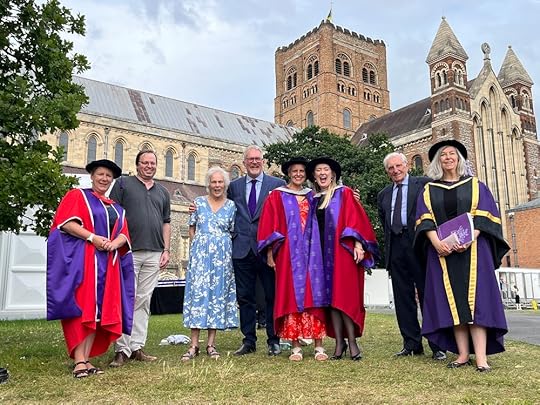
University of Hertfordshire graduation ceremonies take place at St Albans Cathedral, which was completed in 1115 using ‘bricks and tiles saved from the ruins of Roman Verulamium’.



